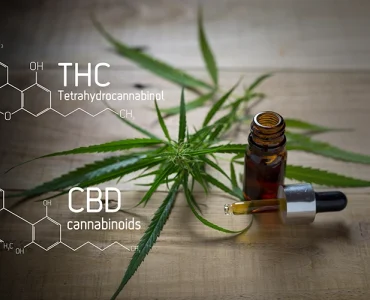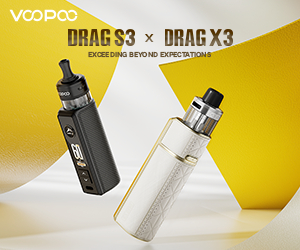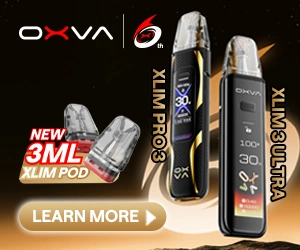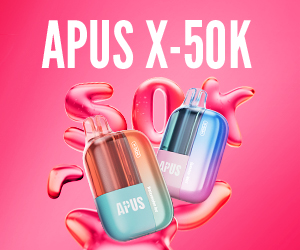The landscape of nicotine delivery products has evolved dramatically over the past decade, with heated tobacco products like IQOS finding a place alongside e-cigarettes and nicotine pouches as an alternative to cigarettes. Having a wider choice of alternatives is no bad thing, but it could lead consumers to wonder if IQOS is truly “better” than vaping and even how it compares to smoking.
In this article, we explore IQOS, how it works, and its potential risks compared with those of vaping and smoking. We also examine the legal status of IQOS in the United States and lay out the pros and cons for anyone considering making the switch to heated tobacco products.
- IQOS is a heated tobacco product made by tobacco company Philip Morris International. The device has become popular in countries as varied as Japan, Italy, and Germany since it was launched in 2014.
- Heated tobacco products contain leaf tobacco mixed with glycerin, but use low temperatures so that tobacco does not combust. Instead, the low heat produces an aerosol that contains nicotine and flavor, but a reported 95% less harmful chemical than a cigarette.
- Studies into the potential harm of inhaling heated tobacco aerosol are ongoing, but several existing studies point out that the use of HTPs appears to increase respiratory diseases and can negatively affect lung physiology, human bronchial epithelial cells, AEP, and asthma.
- The sale and use of IQOS are now, after the FDA granted it Modified Risk Tobacco Product status, federally legal. Not all of the available flavors of HeatSticks have been authorized alongside the IQOS system, but U.S. consumers in most states can legally use the device.
What is IQOS?

IQOS is a heated tobacco product (HTP) developed and owned by tobacco giant Philip Morris International (PMI). It is one of the oldest heated tobacco products on the market and arguably one of the best-known in the United States and elsewhere. IQOS and HTPs like it are increasingly being pushed as an alternative to both smoking and vaping. PMI itself states that HTPs and other smoke-free products now account for more than 40% of its net revenue, and they have invested more than $14 billion in development since 2008.
The IQOS brand was first introduced in 2014, initially in Japan (currently the largest market for heated tobacco products) and Italy before being launched elsewhere. There have been several versions of the device, from the IQOS 2.2 to the current IQOS ILUMA. And while the design and look have evolved, every version works in the same way.
How IQOS Devices Work
As the name suggests, Heated Tobacco Products like IQOS contain tobacco, not just nicotine. The tobacco, contained within small “sticks”, is placed into a slot in the battery part of the device. On older versions of the IQOS, a metal blade-like heating element safely enclosed inside the slot pierces the stick of tobacco. This heating element activates when the user draws on the IQOS, passing just enough heat through the tobacco to release nicotine, flavors, and other compounds tobacco contains.
The temperature produced by the heating element in an IQOS is under 350C. Tobacco combusts at around 400C. Because the tobacco is only heated and not burned, the tar and carcinogens associated with smoking are mostly not produced—at least not at the same high levels. The makers of IQOS suggest that it produces 95% less of these harmful chemicals compared to cigarettes.
What Are HeatSticks?
HeatSticks, also known as Heets, are small tubes that contain finely ground tobacco leaf and glycerin (usually vegetable glycerin, the same ingredient used in vape liquid). HeatSticks also contain a filter at one end. They are designed to be used and then discarded after a certain time or number of puffs. This limit varies for other heated tobacco products, but for Heets, the limit is 14 puffs or 6 minutes, whichever comes first.
The latest version of the iQOS, the ILUMA, uses a new type of HeatStick. Instead of a heating element in the slot piercing the heat stick, each stick has its own heating element embedded within the tobacco core. The ILUMA uses induction technology to heat this internal heating element. This, it is suggested, is more efficient and makes the whole process of using the IQOS cleaner and easier. However, this change in technology means the original Heets won’t work in the newest (and likely future) IQOS devices.
The original Heets were generally unflavored tobacco, but it is now possible to buy them in a variety of flavors, from tobacco and menthol to blueberry, raspberry, and green apple. The exact flavors available will vary depending on your location, with some countries having banned flavored tobacco in recent years.
Is Using IQOS Safer Than Smoking and Vaping?

The concept of “safer” is nuanced when it comes to tobacco and nicotine products. Studies have shown that heated tobacco products like IQOS generally produce lower levels of harmful chemicals compared to traditional cigarette smoke. However, reduced exposure to these chemicals does not equate to “safe.” There is also some concern that most of the studies into the potential harms of HTPs have been funded by the tobacco industry.
An independent 2018 study by Stanton Glantz of the University of California, San Francisco, concluded that:
“There is no statistically detectable difference between IQOS and conventional cigarette users for 23 of the 24 biomarkers of potential harm in PMI’s studies. In Japan, there were no significant differences between people using IQOS and conventional cigarettes in 10 of 13 biomarkers of potential harm.”
Further, a 2021 review of data published on PubMed concluded that the use of HTPs appears to increase respiratory diseases and can negatively affect lung physiology, human bronchial epithelial cells, AEP, allergic rhinitis, and asthma. This review only looked at the potentially harmful effects of using HTPs but not how the harm compares to that of smoking or vaping.
We could find no studies or any other evidence to suggest IQOS is less harmful than vaping, which is commonly said to be 95% less harmful than smoking (and while marketing material for IQOS suggests it produces 95% less harmful chemicals than smoking, that isn’t the same as being 95% less harmful.) In fact, studies have shown that HTPs could be “considerably more harmful than e-cigarettes”.
When looking at alternatives to smoking cigarettes, it is worth considering that while IQOS might reduce exposure to some toxins in comparison, they are not without risk. The same can certainly also be said about vaping. The long-term health implications of inhaling aerosol from either heated tobacco or e-cigarettes remain under study, and both will certainly contribute to nicotine addiction.
Is IQOS Legal in the United States?
It is currently federally legal to use IQOS heated tobacco products in the United States. HTPs are subject to the same checks and controls as any other tobacco products (e.g., cigarettes and e-cigarettes) under the FD&C Tobacco Control Act. The FDA granted marketing permission to the IQOS 2.4 system and HeatSticks in 2020 and the IQOS 3.0 system in 2022.
IQOS products were banned from import and sale in 2021, but PMI solved that problem by moving the production of the affected products to U.S. soil. A review in 2024 resulted in these IQOS products being granted Modified Risk Tobacco Product (MRTP) status. This means that Philip Morris International can legally describe the products as being less harmful than smoking cigarettes (although they are not allowed to say that using IQOS is harmless or safe).
Individual states can impose their own regulations on the sale and use of heated tobacco products, so although IQOS is federally legal, it’s important for consumers to be aware of the laws where they live. We are unaware of any U.S. state that has specifically banned the sale of IQOS, but the device could be included in the more general bans on novel nicotine products currently in place in some areas.
Pros and Cons of Using IQOS

When considering IQOS as an alternative nicotine delivery system, it’s important to weigh its benefits and drawbacks.
PROS
- Lower Cost: A pack of 20 Heets is likely to cost less than 20 cigarettes in most states. So, while switching to IQOS is unlikely to be more cost-effective than vaping, it could save you money when compared to smoking.
- Potentially Less Harmful: As explored above, some studies suggest that users might be exposed to lower amounts of the most dangerous toxicants than with conventional cigarettes.
- Low Odor: IQOS typically produces far less tobacco odor than traditional cigarettes and perhaps even than tobacco-flavored e-liquid. This could be appealing to users concerned about lingering smells.
CONS
- Contains Nicotine: Even if IQOS is less harmful than cigarettes, it is not nicotine-free and using one could induce or increase nicotine dependence.
- More Study Needed: The long-term health impacts of using heated tobacco products remain uncertain. The number of studies into the effects of HTPs is growing, but much more independent study is needed.
- Generates Waste: IQOS has been touted by PMI as producing less waste than cigarettes. However, Heets are single use and need to be discarded, just like a cigarette butt. This “waste-reducing” argument has been disputed by various public health bodies.
The Bottom Line
IQOS and other heated tobacco products represent one of the latest innovations in tobacco product technology. The fact that the FDA has granted the product MRTP status might give the impression that using an IQOS is safer than using the 99.9% of e-cigarettes that haven’t been authorized for sale in the U.S. However, the truth is less clear, and much more independent study into the potential harmfulness of heated tobacco is needed. While IQOS might be less harmful than smoking, we could find no evidence to suggest it is less harmful than vaping.










Add comment